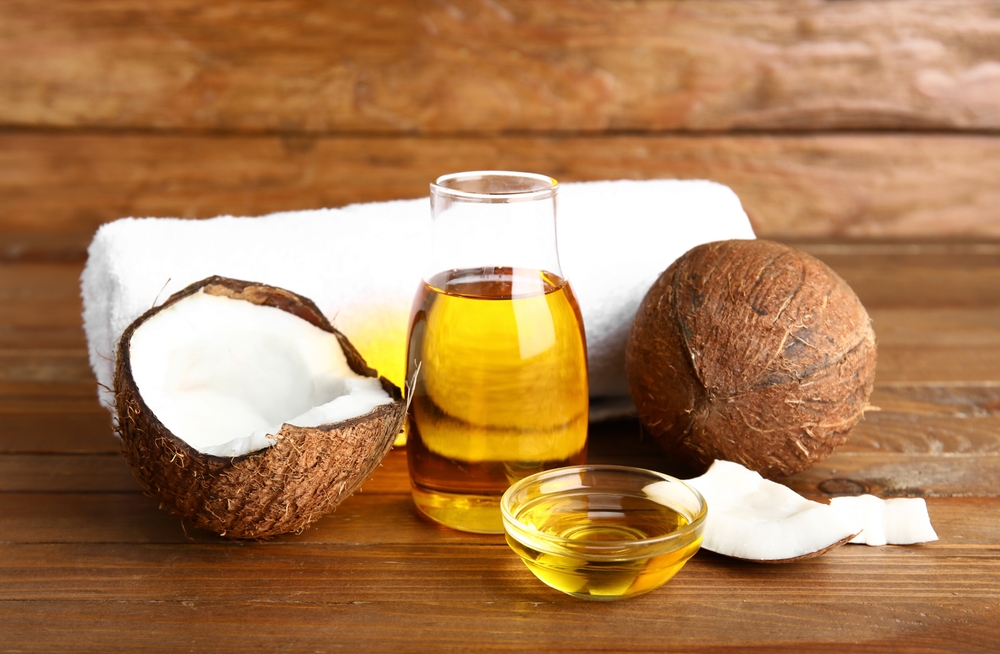Coconut oil has been marketed as a miraculous superfood that can improve heart health, boost metabolism, and provide countless other benefits, but the scientific evidence tells a dramatically different story. Despite aggressive marketing campaigns and celebrity endorsements that have convinced millions of people to swap their cooking oils, most of coconut oil’s heart-healthy claims are based on selective research interpretation and wishful thinking rather than solid science.
The coconut oil industry has successfully created a health halo around their product by focusing on a few favorable studies while ignoring the overwhelming body of research that shows coconut oil is actually one of the worst choices you can make for cardiovascular health. The truth about coconut oil and your heart is far more concerning than the wellness industry wants you to know.
Understanding the real science behind coconut oil can help you make informed decisions about your cooking oils and protect your cardiovascular health from marketing-driven misinformation that could have serious long-term consequences for your heart.
Saturated fat content makes coconut oil a cardiovascular nightmare
Coconut oil contains approximately 82% saturated fat, making it one of the most saturated fat-dense foods you can consume. To put this in perspective, butter contains about 63% saturated fat, while lard contains around 39%. This means coconut oil is actually more saturated than traditional animal fats that health experts have warned against for decades.
Saturated fats raise LDL cholesterol levels in most people, and LDL cholesterol is a well-established risk factor for cardiovascular disease. The American Heart Association, World Health Organization, and virtually every major medical organization recommend limiting saturated fat intake specifically because of its effects on heart disease risk.
The high saturated fat content in coconut oil can increase your LDL cholesterol by 10-15% when substituted for healthier oils, which translates to a significant increase in cardiovascular disease risk over time. This effect has been demonstrated consistently across multiple studies and populations.
Unlike the mixed saturated fats found in dairy products, coconut oil is primarily composed of medium-chain saturated fats, particularly lauric acid. While proponents claim these medium-chain fats behave differently than other saturated fats, research shows they still raise LDL cholesterol levels and contribute to cardiovascular risk.
Cherry-picked studies fuel misleading health claims
The coconut oil industry frequently cites studies from populations in tropical regions where coconut consumption is traditional and heart disease rates are relatively low. However, these studies don’t account for the dramatically different overall dietary patterns, physical activity levels, genetics, and lifestyle factors that affect cardiovascular health.
People in traditional coconut-consuming cultures typically eat whole coconuts as part of diets rich in fish, fruits, vegetables, and other whole foods while maintaining high levels of physical activity. They’re not consuming processed coconut oil as part of Western diets high in processed foods, sugar, and calories.
Many of the studies touted by coconut oil proponents are small, short-term, or have significant methodological limitations that make their conclusions unreliable for making broad health recommendations. Larger, longer-term studies consistently show that coconut oil raises cholesterol levels and increases cardiovascular risk.
The selection bias in how coconut oil research is presented to the public creates a distorted view of the evidence that favors commercial interests over public health. The most rigorous and comprehensive studies paint a much less favorable picture of coconut oil’s health effects.
Cholesterol levels rise consistently with coconut oil consumption
Multiple controlled studies have demonstrated that replacing other cooking oils with coconut oil leads to increases in both total cholesterol and LDL cholesterol levels. These increases occur even when people are following otherwise healthy diets and maintaining stable body weights.
A comprehensive review of controlled trials found that coconut oil raised LDL cholesterol levels compared to other plant-based oils in nearly every study examined. The increases ranged from modest to substantial, but the direction of change was consistently unfavorable for heart health.
The cholesterol-raising effects of coconut oil are dose-dependent, meaning that consuming larger amounts leads to greater increases in cholesterol levels. This relationship holds true across different populations and dietary contexts, suggesting that the effect is robust and clinically significant.
Even people who experience increases in HDL cholesterol when consuming coconut oil typically see larger increases in LDL cholesterol, resulting in a worse overall cholesterol profile that increases cardiovascular disease risk despite the HDL improvements.
Medium-chain triglycerides don’t justify the saturated fat load
Coconut oil proponents often focus on the medium-chain triglycerides content as justification for the oil’s health benefits, but this argument ignores the fact that MCTs make up only about 15% of coconut oil’s composition. The majority of coconut oil consists of longer-chain saturated fats that behave like traditional saturated fats in your body.
Pure MCT oil, which is a processed extract from coconut oil, may have some metabolic benefits, but consuming coconut oil to get MCTs is like eating candy to get antioxidants from cocoa. You’re getting a small amount of potentially beneficial compounds along with a large amount of substances that are harmful to your health.
The metabolic benefits attributed to MCTs are typically seen only with pure MCT supplements or oils, not with whole coconut oil consumption. The processing required to concentrate MCTs removes them from the context of coconut oil’s high saturated fat content.
Research on pure MCT oil cannot be extrapolated to make health claims about coconut oil because the two products have dramatically different compositions and effects on cholesterol levels and cardiovascular risk factors.
Healthier alternatives provide better cardiovascular protection
Olive oil, particularly extra virgin olive oil, has extensive research supporting its cardiovascular benefits and contains primarily monounsaturated fats that improve cholesterol profiles and reduce inflammation. The Mediterranean diet’s heart-protective effects are largely attributed to olive oil consumption.
Avocado oil provides similar monounsaturated fat benefits with a higher smoke point that makes it suitable for higher-temperature cooking applications where coconut oil might be used. Avocado oil also contains additional beneficial compounds like vitamin E and antioxidants.
Canola oil, despite being less trendy than coconut oil, has a much more favorable fatty acid profile with low saturated fat content and beneficial omega-3 fatty acids. Large-scale studies consistently show better cardiovascular outcomes with canola oil compared to coconut oil.
Even small amounts of these healthier oils provide more cardiovascular benefits than coconut oil while avoiding the cholesterol-raising effects that increase heart disease risk over time.
Marketing versus medical consensus creates dangerous confusion
The disconnect between coconut oil marketing claims and medical consensus creates dangerous confusion for consumers who may make dietary choices that harm their cardiovascular health based on misleading information. Major medical organizations consistently recommend against coconut oil for heart health.
The American Heart Association specifically warns against coconut oil consumption and recommends limiting saturated fat intake from all sources, including tropical oils like coconut oil. This recommendation is based on decades of research and remains unchanged despite industry pressure.
Marketing campaigns that position coconut oil as heart-healthy directly contradict evidence-based medical recommendations and may be putting consumers at increased risk for cardiovascular disease. The persistence of these claims despite scientific evidence suggests that commercial interests are overriding public health considerations.
Consumer confusion about coconut oil demonstrates the need for better science communication and more aggressive action against misleading health claims that contradict established medical evidence.
The bottom line on coconut oil and heart health
The scientific evidence overwhelmingly shows that coconut oil is not heart-healthy and may actually increase cardiovascular disease risk due to its extremely high saturated fat content. The studies most frequently cited by coconut oil proponents are either misinterpreted or represent cherry-picked data that doesn’t reflect the broader scientific consensus.
For optimal heart health, choose cooking oils that are low in saturated fat and high in unsaturated fats, such as olive oil, avocado oil, or canola oil. These alternatives provide better cardiovascular protection without the cholesterol-raising effects associated with coconut oil consumption.
If you enjoy the flavor of coconut oil, use it sparingly as a flavoring agent rather than as your primary cooking oil, and balance its saturated fat content by reducing saturated fat from other sources in your diet.
The most important lesson from the coconut oil controversy is the need to rely on comprehensive scientific evidence rather than marketing claims when making dietary decisions that affect your long-term health. Your heart deserves better than trendy superfood hype.















